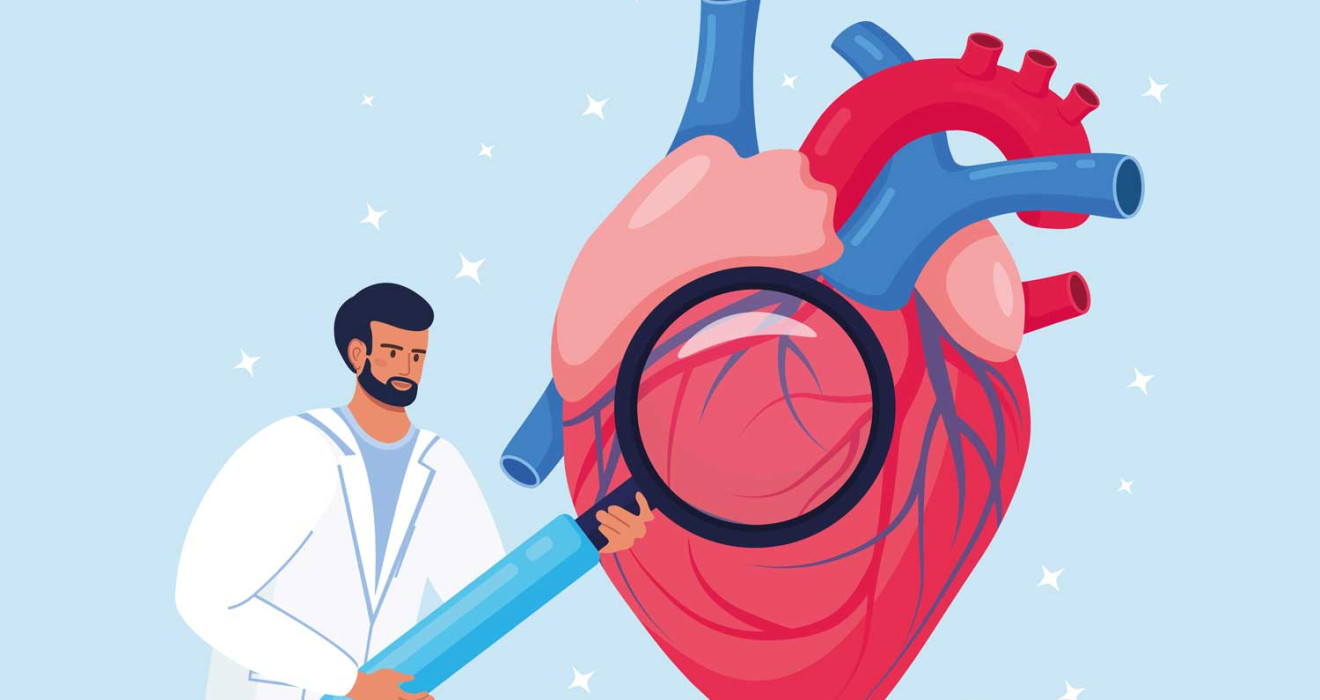
Heart Check-Up – Heart Check
Heart check-up is a comprehensive examination and evaluation process for heart health. In this evaluation, many factors related to heart health are considered, and necessary tests are performed for the early diagnosis of heart diseases. This control is significant for people who have risk factors, even if they don't have symptoms.
What is Heart Check-Up?
A heart check-up is a series of tests and examinations to learn about heart health. It is a screening test, especially for people at risk of heart disease or showing symptoms.
Why is Heart Control Performed?
A heart check-up is performed to check the heart health of people at risk of heart disease, to detect heart diseases early, and to prevent the development of cardiac arrest, heart failure, and other heart diseases.
How is Heart Check-Up Performed?
It includes a series of tests and examinations. These tests include blood tests, electrocardiogram (ECG), echocardiography, exercise ECG, and other tests, if necessary. Many of these tests are painless and are completed within a few hours.
Who Should Get a Heart Check-Up?
People at risk of heart disease must have a heart check. These risk factors are as follows:
- Excess weight
- High blood pressure
- High cholesterol
- Diabetes
- Smoking
- Family history of heart disease
- A stressful lifestyle
- Insufficient physical activity
What is Checked in Heart Check-Up?
A heart check-up is the application of various tests to assess a person's heart health comprehensively. The assessments made are as follows:
- Cardiac examination: With the physical examination performed by the cardiologist, the rhythm of the heart, pulse, blood pressure, and heart sounds are evaluated.
- ECG (Electrocardiography): It is a test that measures the heart's electrical activity. This test detects heart rhythm disorders, previous heart attacks, or heart muscle diseases.
- Echocardiography: An ultrasound test that provides a detailed view of the heart muscle, heart valves, heart chambers, and some heart vessels. This test diagnoses heart muscle damage, heart valve problems, heart failure, and other diseases.
- Treadmill test: Also known as an exercise stress test, this test is used to evaluate how a person's heart responds while exercising. It can be used to detect narrowing or blockages in the heart vessels.
- Blood tests: Various blood tests, such as measuring cholesterol, triglyceride, blood sugar, and other biochemical parameters, can be performed during the check-up process.
What Diseases Are Diagnosed With Heart Check-Ups?
Heart control is vital for diagnosing other heart diseases, such as coronary artery disease, cardiac arrest (heart attack), heart failure, and valvular heart disease.
When Should Heart Check-Up Be Started?
A heart check-up is a test recommended starting from the age of 40. However, if there are risk factors for heart disease, it can be done at an earlier age.
Which Professions Are Prone To Heart Check-Ups?
Even if there is no heart disease or risk factor, there are occupational groups that should pay particular attention to heart health. These occupational groups are as follows:
- Healthcare workers: Healthcare professionals have high stress and fatigue levels because they are constantly working under intense workloads. This may increase their susceptibility to heart disease.
- Bankers and financial services workers: Those in the financial services industry may be prone to heart disease due to high-stress levels and workloads.
- Managers and people in managerial positions working long hours: Intensive workload and long working hours can affect heart health.
- Police, firefighters, and other law enforcement: These occupational groups should pay special attention to their heart health due to physical activity and high-stress levels.
Frequently Asked Questions
-
A cardiology check-up is a series of tests and examinations used to diagnose and follow up cardiovascular diseases. These tests are performed to detect risk factors related to heart health, early diagnosis, and treatment of diseases.
-
It is a comprehensive medical examination, usually by a cardiologist. It can include many different tests and evaluations related to heart health. These tests and assessments vary for each patient.
-
Yes, heart check-up tests may change according to age. Generally, risk factors such as blood pressure, cholesterol, and smoking are checked for people aged 20-30, while more comprehensive tests are performed for people over 40.
-
Heart check-up tests usually vary according to the person's age, gender, medical history, and current symptoms. The tests that can be done are as follows:
- Physical examination
- Blood tests
- ECG
- Echocardiography
- Exercise test
- Cardiac CT scan
- Cardiac MRI scan
- Holter monitoring
- Coronary angiography


